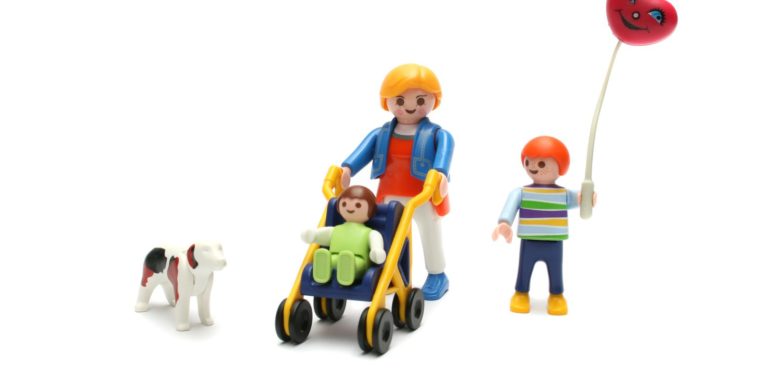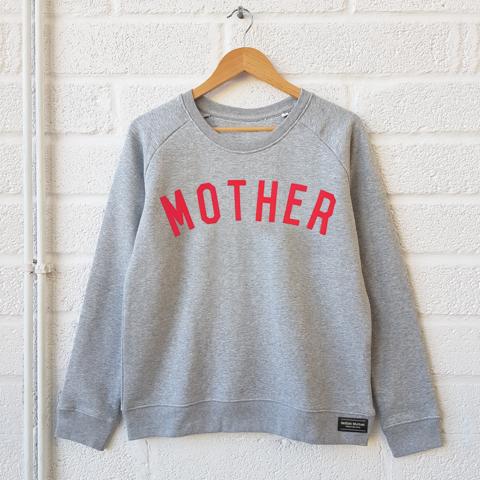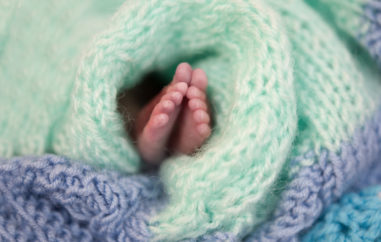1
It takes a village to raise a child, as the saying goes. But how are 21st century parents meant to cope when, not only do very few of us live in villages, but we also live in a society which seems to place absolutely zero value on child-rearing?
Mothers and fathers are both affected by this phenomenon, but I will probably refer most to mothers, partly because I have no personal experience of being a father, and partly because one of the problems is that society still seems to consider childcare to be a maternal issue. Kelly Brook, in her controversial
SelfishMother.com
2
comments this week about working mothers, made no reference to ’working fathers’ – presumably they’re just ’men’.
I was fortunate to have the choice, and I decided to quit my job rather than return to work after maternity leave when my first daughter was born. I’ve since developed a career as a writer, but certainly in terms of my financial contribution to our household I am a stay-at-home mum. That means I escape some of the most difficult conflicts of balancing work obligations with sick children, sports days, nativity plays etc, as well as
SelfishMother.com
3
the extortionate cost of childcare. What I face is the knowledge that because I am not economically active society feels I barely exist at all. My husband earns over the eligibility threshold for child benefit. Fair enough, I can see that lines have to be drawn, and perhaps that isn’t the greatest spending priority. What makes me seethe with anger is the fact that if my husband earned half what he does, and I also went to work and earned half what he now does, not only would our household income be higher because of two lots of personal tax allowance,
SelfishMother.com
4
but we would also be eligible for child benefit. It’s not so much the money, although that’s always handy, it’s the way the state considers be invisible because I don’t work outside the home, and no value whatsoever is placed on the role I play in raising my daughters.
Mums who return to work, whether through choice, financial necessity, or a combination, face equally tough circumstances. They may receive financial recompense and respect, but society seems to expect their parenting role to fit neatly around their working day and never impinge on
SelfishMother.com
5
it.
Childcare in the UK is incredibly expensive. That is not a criticism of the providers, but compared to most European countries it receives barely any state subsidy for the first two years of a child’s life. It is also unreliable. Again, that’s not a criticism of the childminders and nurseries, but a simple fact. Kids get sick. Quite a lot. And small children in a childcare setting for the first time will generally get all the bugs going as their immune system toughens up. NHS guidelines are, quite reasonably, that children shouldn’t return to
SelfishMother.com
6
nursery/school for 48 hours after an episode of diarrhoea or vomiting. Most childcare settings won’t accept children who have a temperature (and both my children have always run a 39 degree fever at the slightest hint of a cold!), and obviously all the infectious childhood diseases such as chicken pox, hand, foot and mouth, slapped cheek etc have their own quarantine periods. Add up the number of days an average toddler is likely to need to stay away from childcare, and then the number of days the average employer allows for paid dependents leave and
SelfishMother.com
7
you’re going to see a massive discrepancy. But even if you ignore the humane argument, that a poorly child needs to be at home with their parent, even if the parent in question is dedicated beyond measure to their job, what exactly are they meant to do with the poorly child if they go to work? Some people are fortunate enough to have a ’village’ of supportive grandparents living nearby, but that is the exception rather than the rule. I live 250 miles from my parents, and although my MIL lives in London (albeit still an hour away), until very recently
SelfishMother.com
8
she worked full-time herself. Most of my friends with young children are in similar positions.
Having children is a choice, of course it is, but that facile argument is used too often to justify parents being given little or no support, and vilified if their parenting responsibilities conflict with their professional ones. Years ago I worked with a woman who was child-free through choice. She refused on a point of principle to give up her seat on the tube for a pregnant woman, and was highly critical of the policy which allows time off work for
SelfishMother.com
9
antenatal appointments, because she felt pregnancy was a lifestyle choice. Funnily enough, she didn’t feel the same about someone who had injured their leg playing 5-a-side football and needed to use crutches and have time off for physiotherapy.
I had children because of a viscerally overwhelming desire to do so, not because I selflessly wanted to repopulate the world. But it is inescapably true that at present the UK has an ageing population, and we need people to be able to have children and bring those children up to be decent well-rounded human
SelfishMother.com
10
beings in order to one day pay the tax and take on the caring roles and responsibilities necessary to support older generations. Raising children is a full-time job for someone. It doesn’t have to be the parent, but if some of it is outsourced that needs to be paid for, and some bits are inescapably the responsibility of the parent, and it doesn’t seem unreasonable that we make allowances for that.
One of my friends returned to work recently after maternity leave. She is totally exhausted after getting up early to get herself and her kids fed,
SelfishMother.com
11
dressed and dropped off at school/childminder, then doing a full day’s work, using her lunch break to express milk for her baby boy, not to mention coping with continued multiple night-time wake ups as babies rarely get the memo stating that they need to be able to sleep through the night once their mum is back at work. Despite this, when she took her baby for his vaccinations (hardly an optional extra) her workplace told her that the hours had to be made up elsewhere, and so she was working at home until gone 10pm. Pretty unlikely that would be the
SelfishMother.com
12
policy had she needed a doctors appointment for herself.
When my eldest was a baby I naively thought that it would be easier to return to work once she was at school. Of course in reality jobs where you can work 9.30am-2.30pm and get 15 weeks annual leave a year are rather few and far between, and breakfast clubs, after-school clubs and holiday clubs are both scarce and expensive.
Scandinavian countries generally come out top of surveys on quality of life, happiness and educational attainment. There, maternity leave and paternity leave is shared,
SelfishMother.com
13
and parents are able to be at home with their babies until around their second birthdays. Then heavily subsidised childcare is available to everyone, very often with creches/nurseries in workplaces so that parents can pop in to see their child during their lunch break, and are right on hand in case of a problem. Most people finish work at around 4pm so that they can pick their children up from school and spend the evening together as a family. The ’glass ceiling’ for women barely exists, partly because caring responsibilities are respected and catered
SelfishMother.com
14
for, and partly because they are seen as shared responsibilities and not just a problem for women.
I just feel we have to change our whole mindset as a country. Stop seeing child-rearing as a shameful problem that mums have to cope with in the sidelines of their life whilst proving that they can continue to commit to a macho long-hours culture. Stop the necessity for parents to choose between growing their career and growing their family. Accept that the whole of society has a stake in raising the next generation, and it’s in all our interests to do
SelfishMother.com
15
it properly. And most of all stop vilifying parents for the times they need to put their children first.
SelfishMother.com
This blog was originally posted on SelfishMother.com - why not sign up & share what's on your mind, too?
Why not write for Selfish Mother, too? You can for free and post immediately.
We regularly share posts on @SelfishMother Instagram and Facebook :)
Helen Chandler - 15 Jun 18
It takes a village to raise a child, as the saying goes. But how are 21st century parents meant to cope when, not only do very few of us live in villages, but we also live in a society which seems to place absolutely zero value on child-rearing?
Mothers and fathers are both affected by this phenomenon, but I will probably refer most to mothers, partly because I have no personal experience of being a father, and partly because one of the problems is that society still seems to consider childcare to be a maternal issue. Kelly Brook, in her controversial comments this week about working mothers, made no reference to ‘working fathers’ – presumably they’re just ‘men’.
I was fortunate to have the choice, and I decided to quit my job rather than return to work after maternity leave when my first daughter was born. I’ve since developed a career as a writer, but certainly in terms of my financial contribution to our household I am a stay-at-home mum. That means I escape some of the most difficult conflicts of balancing work obligations with sick children, sports days, nativity plays etc, as well as the extortionate cost of childcare. What I face is the knowledge that because I am not economically active society feels I barely exist at all. My husband earns over the eligibility threshold for child benefit. Fair enough, I can see that lines have to be drawn, and perhaps that isn’t the greatest spending priority. What makes me seethe with anger is the fact that if my husband earned half what he does, and I also went to work and earned half what he now does, not only would our household income be higher because of two lots of personal tax allowance, but we would also be eligible for child benefit. It’s not so much the money, although that’s always handy, it’s the way the state considers be invisible because I don’t work outside the home, and no value whatsoever is placed on the role I play in raising my daughters.
Mums who return to work, whether through choice, financial necessity, or a combination, face equally tough circumstances. They may receive financial recompense and respect, but society seems to expect their parenting role to fit neatly around their working day and never impinge on it.
Childcare in the UK is incredibly expensive. That is not a criticism of the providers, but compared to most European countries it receives barely any state subsidy for the first two years of a child’s life. It is also unreliable. Again, that’s not a criticism of the childminders and nurseries, but a simple fact. Kids get sick. Quite a lot. And small children in a childcare setting for the first time will generally get all the bugs going as their immune system toughens up. NHS guidelines are, quite reasonably, that children shouldn’t return to nursery/school for 48 hours after an episode of diarrhoea or vomiting. Most childcare settings won’t accept children who have a temperature (and both my children have always run a 39 degree fever at the slightest hint of a cold!), and obviously all the infectious childhood diseases such as chicken pox, hand, foot and mouth, slapped cheek etc have their own quarantine periods. Add up the number of days an average toddler is likely to need to stay away from childcare, and then the number of days the average employer allows for paid dependents leave and you’re going to see a massive discrepancy. But even if you ignore the humane argument, that a poorly child needs to be at home with their parent, even if the parent in question is dedicated beyond measure to their job, what exactly are they meant to do with the poorly child if they go to work? Some people are fortunate enough to have a ‘village’ of supportive grandparents living nearby, but that is the exception rather than the rule. I live 250 miles from my parents, and although my MIL lives in London (albeit still an hour away), until very recently she worked full-time herself. Most of my friends with young children are in similar positions.
Having children is a choice, of course it is, but that facile argument is used too often to justify parents being given little or no support, and vilified if their parenting responsibilities conflict with their professional ones. Years ago I worked with a woman who was child-free through choice. She refused on a point of principle to give up her seat on the tube for a pregnant woman, and was highly critical of the policy which allows time off work for antenatal appointments, because she felt pregnancy was a lifestyle choice. Funnily enough, she didn’t feel the same about someone who had injured their leg playing 5-a-side football and needed to use crutches and have time off for physiotherapy.
I had children because of a viscerally overwhelming desire to do so, not because I selflessly wanted to repopulate the world. But it is inescapably true that at present the UK has an ageing population, and we need people to be able to have children and bring those children up to be decent well-rounded human beings in order to one day pay the tax and take on the caring roles and responsibilities necessary to support older generations. Raising children is a full-time job for someone. It doesn’t have to be the parent, but if some of it is outsourced that needs to be paid for, and some bits are inescapably the responsibility of the parent, and it doesn’t seem unreasonable that we make allowances for that.
One of my friends returned to work recently after maternity leave. She is totally exhausted after getting up early to get herself and her kids fed, dressed and dropped off at school/childminder, then doing a full day’s work, using her lunch break to express milk for her baby boy, not to mention coping with continued multiple night-time wake ups as babies rarely get the memo stating that they need to be able to sleep through the night once their mum is back at work. Despite this, when she took her baby for his vaccinations (hardly an optional extra) her workplace told her that the hours had to be made up elsewhere, and so she was working at home until gone 10pm. Pretty unlikely that would be the policy had she needed a doctors appointment for herself.
When my eldest was a baby I naively thought that it would be easier to return to work once she was at school. Of course in reality jobs where you can work 9.30am-2.30pm and get 15 weeks annual leave a year are rather few and far between, and breakfast clubs, after-school clubs and holiday clubs are both scarce and expensive.
Scandinavian countries generally come out top of surveys on quality of life, happiness and educational attainment. There, maternity leave and paternity leave is shared, and parents are able to be at home with their babies until around their second birthdays. Then heavily subsidised childcare is available to everyone, very often with creches/nurseries in workplaces so that parents can pop in to see their child during their lunch break, and are right on hand in case of a problem. Most people finish work at around 4pm so that they can pick their children up from school and spend the evening together as a family. The ‘glass ceiling’ for women barely exists, partly because caring responsibilities are respected and catered for, and partly because they are seen as shared responsibilities and not just a problem for women.
I just feel we have to change our whole mindset as a country. Stop seeing child-rearing as a shameful problem that mums have to cope with in the sidelines of their life whilst proving that they can continue to commit to a macho long-hours culture. Stop the necessity for parents to choose between growing their career and growing their family. Accept that the whole of society has a stake in raising the next generation, and it’s in all our interests to do it properly. And most of all stop vilifying parents for the times they need to put their children first.
Did you enjoy this post? If so please support the writer: like, share and comment!
Why not , too? You can share posts & events immediately. It's free!
I'm author of novels 'Two For Joy' and 'To Have and to Hold' and mum to two daughters aged twelve and six. As well as writing, and my children, I love reading, cooking, eating and exploring London (and further afield when I get the chance).
I was born and brought up in Liverpool, studied English at Oxford
University, and now live in East London with my husband, daughters and cat.
LIST




















